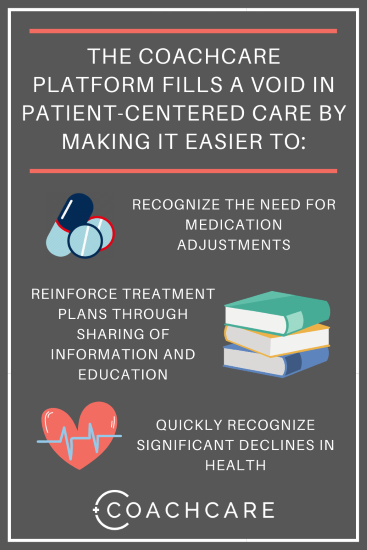Improving Endocrinology Outcomes with Virtual Health
Due to the ongoing pandemic that is COVID-19, endocrinologists and diabetes specialists are starting to see a nationwide shift to Telemedicine and virtual communication, while prioritizing patients who still urgently need in-person consultations. This virtual trend, although once foreign to many of these doctors, is being highly praised and welcomed to keep clinics running and patients healthy. For a specialty clinic like endocrinology, virtual health provides several advantages to both the provider and the patient.

Endocrinologists today are in a unique position to provide consultations or direct care to their patients via telehealth and virtual care platforms, using patient-provided history and data, laboratory tests, and diabetes technology and connected devices.
Virtual Health Encourages Patient Behavior Change and Accountability
An endocrinologist’s main goal for face-to-face meetings with patients has historically been to diagnose and treat hormone imbalances and problems by helping to restore the normal balance of hormones in the body. Several medical conditions, including diabetes and thyroid disorders, can affect a patient’s endocrine system negatively.
In addition, certain lifestyle habits and environmental factors can play a role in these same hormonal imbalances, including poor diet/ nutrition, obesity, chronic or extreme stress, anorexia, iodine deficiency, birth control pills, missed medications, phytoestrogens found in soy products, among others. Virtual health helps endocrine patients improve outcomes by supporting the implementation of healthy lifestyle changes from home to help combat the health issues listed above and ultimately, to balance the hormones.
Virtual health also provides endocrinology patients with several other benefits, including personalized education, motivational strategies, and improved accountability through virtual communication channels - including video conferencing, real-time messaging, automated communications and digital content. The American Diabetes Association’s 2018 Standards of Medical Care in Diabetes recommends effective self-management education and support when treating diabetes patients virtually.
Clinic Benefits Include Increased Patients and Better Compliance
Endocrinology clinics can also bring in more patients with virtual care. Today, through virtual health platforms, it is possible to not only be cautious about spreading COVID-19 to the population, but it is an opportunity to extend endocrinologist access to underserved markets – drastically reducing the burden on patients, increasing the frequency of appointments, and ultimately improving compliance.
Another clear advantage is that with virtual health, as opposed to on-the-fly advising, the patient process is formalized, and everything that takes place is documented in the patient’s medical record.
Lack of transportation and forgotten appointments have also historically extended gaps in face-to-face patient care, increasing non-compliance. With virtual care, it is possible to optimize patient-provider communication and meetings while removing barriers associated with in-person visits. A virtual care platform fills a void in patient-centered care by providing a cost-effective way to stay in front of patients, making it easier to:
– Recognize the need for medication adjustments
– Reinforce treatment plans through sharing of information and educational materials
– Quickly recognize significant declines in health
About CoachCare:
CoachCare powers clinics with a virtual health and remote patient monitoring platform that reflects your unique workflow and protocol. Remote patient monitoring insurance features drive significant additional revenue while lowering the overall cost of care. Contact us to learn more.